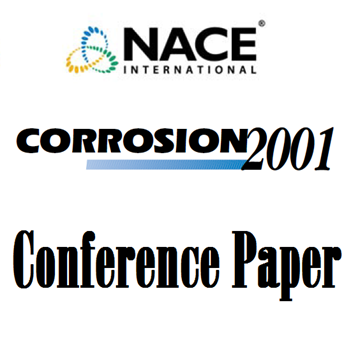Search
97533 THERMOPLASTIC COATINGS FOR ANTENNA RADOMES
Also Purchased
01428 INSPECTION OF HOT DIP GALVANIZED ARTICLES
Product Number:
51300-01428-SG
ISBN:
01428 2001 CP
Publication Date:
2000
$20.00
00758 POLYURETHANE AND EPOXY COATINGS FOR THE REHABILITATION AND REPAIR OF PIPELINES
Product Number:
51300-00758-SG
ISBN:
00758 2000 CP
$20.00
00609 WATERBORNE / WATER REDUCIBLE POLYURETHANE COATINGS FOR USE IN INDUSTRIAL FACILITIES
Product Number:
51300-00609-SG
ISBN:
00609 2000 CP
$20.00
Recently viewed




